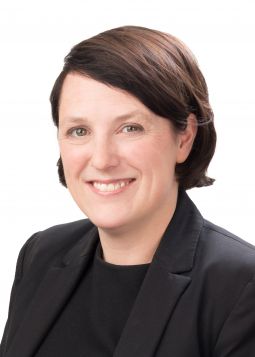Christchurch law firm, Harmans Lawyers committed to the Law Society’s Gender Equality Charter in December 2018.
Six months on, the firm says it is making a difference to the business which employs more than 50 people including lawyers, legal secretaries and other support staff.
Mary Crimp and Colin Abernethy are both partners at the firm and one of their combined roles is to ensure they’re proactive in achieving the range of charter commitments.
What’s different under the charter?

Colin Abernethy
As Mr Abernethy explains, since the Charter came into effect, staff, clients, job applicants and graduates have expressed an interest in knowing Harmans’ position on gender equality. For example, she says university graduates at recruitment evenings are aware of the need for equality and will often ask whether Harmans is a signatory to the Charter.
And, when the firm is recruiting for new staff, Harmans’ commitment is referenced in its recruitment advertisements. It is also displayed on the Harmans website and Facebook page, and clients have been made aware of Harmans’ commitment through client e-newsletters.
In relation to the Charter commitment - to ensure unconscious bias training for all employees, Mrs Crimp says that all Harmans staff have watched the Continuing Legal Education webinar on unconscious bias and that Harmans is ensuring ongoing monitoring of this. New employees will also be expected to view the webinar and be encouraged to ask questions.
Charter updates at board meetings
The Gender Equality Charter is a standing matter of business that is discussed at monthly partnership meetings before the board held by Harmans Lawyers. As Mary Crimp explains, this emphasises how seriously the firm is taking its commitment. It also ensures regular discussion about how Harmans is doing and enables all partners to have the same awareness as to initiatives that the firm is undertaking in that area.
The firm also encourages open discussion about the Charter with its staff, having discussed its commitment to the Charter both via email and at regular firm updates.

Mary Crimp
As Mrs Crimp says, “We encourage staff to get involved. Our commitment is displayed on our website, Facebook page, our e-newsletter to clients. It’s about saying, this is where we stand and let’s talk about how we’re doing.”
The firm has also adopted a sexual harassment policy, independent of its existing harassment policy. This is a robust policy and as noted by Mrs Crimp, a draft was sent out to all staff for feedback prior to implementation.
“One of the most important factors is ensuring an appropriate avenue exists for the reporting of any incidents, if something did occur,” she says.
Mr Abernethy says the firm also has a buddy system where people are able to regularly speak with a nominated senior lawyer, in addition to their supervising partner, the managing partner and the practice manager, as sometimes people are more comfortable in this environment.
Harmans Lawyers has been a sponsor of the Canterbury Women’s Legal Association for a number of years. The firm is also open to sponsoring other groups or events that progress gender equality.
Other commitments making a difference
One of the key commitments of the Gender Equality Charter is to adopt equitable briefing and instruction practices.
For Harmans, this applies not only to the external briefing out of matters. What this means is that regardless of whether you are a woman or a man, there is equal opportunity to represent the firm, not just in work but also at formal client events and other associated meetings.
Mr Abernethy notes that for Harmans it’s important that from the very start when it comes to allocating work, everyone – that is whoever is in the role of allocating that work – understands what they’re trying to achieve.
For example, when the firm is selecting staff to attend university recruitment evenings, it calls for expressions of interest from its legal staff so an equal opportunity is then given to all wishing to represent Harmans.
Gender pay audits
One of the more sensitive issues to tackle with the Gender Equality Charter is to conduct gender pay audits. While gender does not come into any decisions around pay at Harmans, Mrs Crimp says that Harmans is committed to undertaking a full gender pay audit in the near future.
“Because the bulk of our legal staff are women, it will be interesting to see what the results will be when we do the audit. It’s also about auditing promotions so that both women and men who work at Harmans have the opportunity to rise in their careers at the same speed,” she says.
The Law Society’s Gender Equality Charter was introduced to the law profession in April last year and has 128 signatories which represents over 3250 lawyers.
